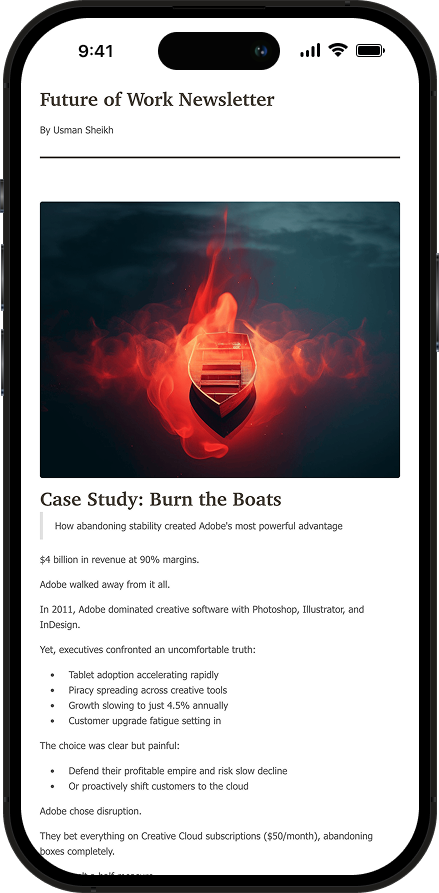25 Apr 2025 • 3 min read
$300M Bet to Flip the Pyramid Model
EY & PwC senior leaders challenge the model backed by Private Equity
Insiders Challenging the Status Quo
The partnership model isn't just struggling.
It's being rebuilt by its own architects.
This week the most compelling evidence comes from someone who helped scale that very model.
Steve Varley has a storied career as partner at Arthur Andersen (now Accenture) and then 18 years at EY where he held the Chairman and Managing Partner role.
If there were ever an insider, it would be him.
Varley isn't alone in this venture. He's joined by Marissa Thomas who was PwC UK COO and left in Feb 2025.
Together they are launching Unity Advisory.
The Partnership Model's Weaknesses
His quotes in a Financial Times article are telling:
→ "Partnerships have a lot of advantages, but one of the things they don't do well is medium to long-term investment."
→ "Super client-centric" (vs. partnership's thinly spread partner structure)
→ "Really low administrative cost" (vs. partnership's legacy and bureaucratic overhead)
→ "AI-led rather than based on legacy infrastructure" (vs. partnership's technology constraints)
→ "Crucially, has no conflicts" (vs. partnership's audit-driven limitations)
Of course, skeptics will have their say.
They will say he is talking his new book and while that is fair, I doubt Warburg Pincus LLC placed a $300M bet without some substance.
The model he is describing above is very similar to the inverted pyramid model I have written extensively on.
The Strategic Execution Plan
The article goes into further detail on execution details:
→ Targeting the exact mid-market ($500M-$1.5B revenue) where Big 4 are vulnerable
→ Focusing on PE-backed companies who value speed and execution
→ Building without legacy infrastructure constraints
→ Promising fee structures tied to outcomes, not hours
This strategic positioning has massive implications for the entire professional services ecosystem.
Implications for Industry Stakeholders
For established firms, the threat is immediate:
→ Top talent gets better economics without partnership
→ Technology investment not blocked by divestures
→ Decisions speed increases without governance traps
→ Mid-market clients get partner attention not managers
For professionals, everything changes:
→ Partnership is no longer the only wealth creation path
→ Career progression moves away from traditional ladders
→ Expertise and adaptability outweigh institutional loyalty
→ Rewarded for efficiency vs pyramid comp constraints
For clients, particularly in the mid-market:
→ Solutions built for them, not retrofitted solutions
→ Value-based fees replace time-based billing
→ Technology-first delivery without legacy constraints
→ Execution at business speed, not partnership pace
A Fundamental Inflection Point
Taken together, these changes signal a fundamental inflection point in professional services.
After centuries of partnership dominance in professional services, the market is ready for something different.
And the people who know partnerships best are the ones building the alternative.
Summary
Former Big 4 leaders Steve Varley (ex-EY) and Marissa Thomas (ex-PwC) are disrupting the traditional partnership model with Unity Advisory, backed by $300M from Warburg Pincus.
The shift signals a pivotal moment: industry insiders are creating alternatives to centuries-old partnership dominance.
Interested? Join the discussion in Linkedin
